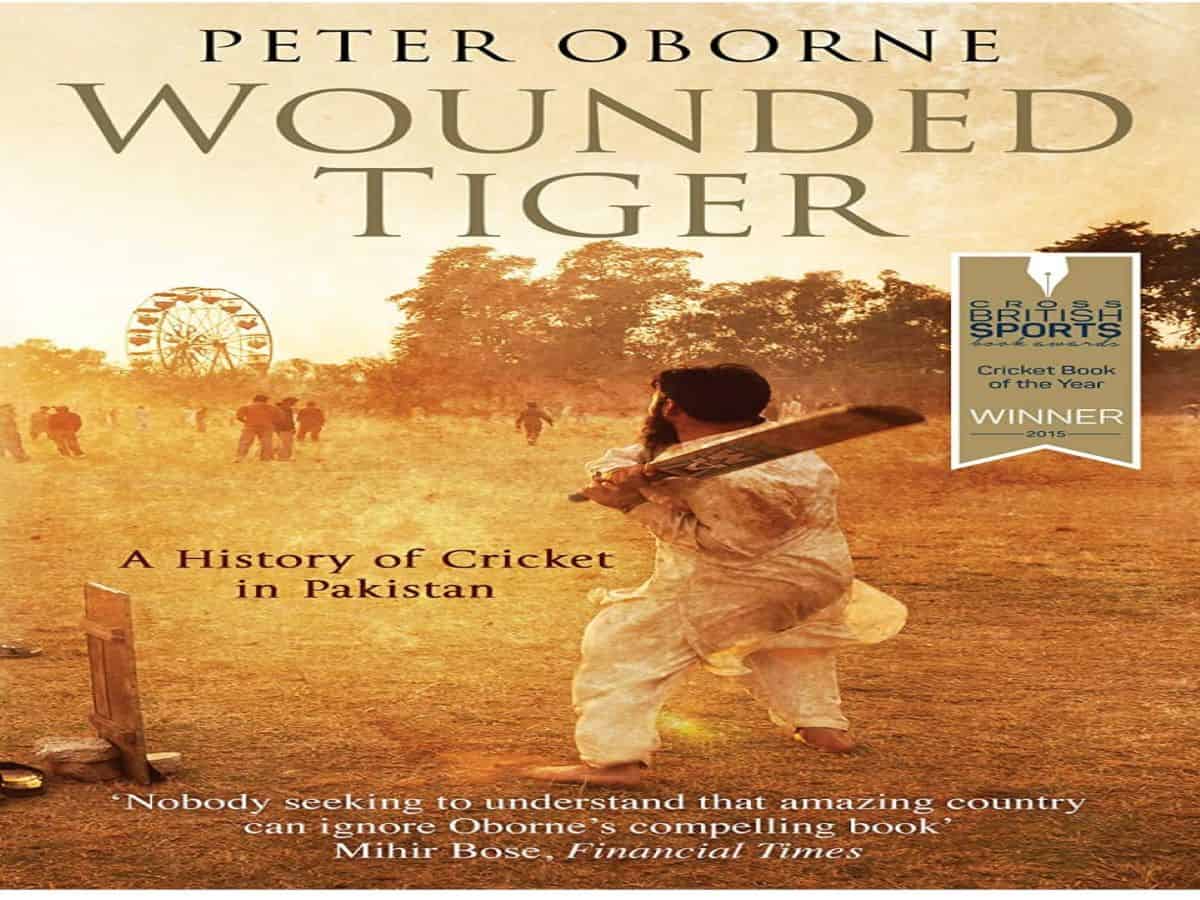
Books on Pakistan are a perennial favorite of mine. More often than not – these are mostly written by the South Asian correspondents/editors of the more famous newspapers/journals who think it is a rite of passage to write a book or two on India and Pakistan. After meandering thru partition / the coups/dictators/terror / Taliban / failed democracy they conclude that it is a country that is fully messed up – nice and proper and beyond hope and redemption (Think of Anatol Leiven’s Pakistan: A Hard Country or MJ Akbar’s: Tinderbox) and no patch of comparison with its go-go neighbour India…I have a feeling that these books are specifically written for Indian audiences who need a reference point to feel good about India.
So when finds a book written by the political editor of the Telegraph and also realize that he has a string of well-reviewed books to his credit, you gingerly buy WOUNDED TIGER – it is about cricket and also Pakistan and hoping to spend a couple of evenings reading about the turbulent state of cricket in a troubled country.
Magnificent is the word to describe the majestic sweep of this book which runs into 500+ pages. Unlike the normal author who more often than not is prejudiced and prejudges Pakistan before he types his first word – here is a man who writes with fondness towards the cricketers, even indulgent at times but given the fascinating subject/(s), we can pardon the author for these minor transgressions.
What one needs to understand is that unlike in India (where we are only crazy about cricket and nothing more) in Pakistan (a country where they are perpetually at war with themselves) Cricket defines their national identity and their collective consciousness is bonded by Cricket and nothing else.
Tracing the shaky and tentative start of the ‘independent’ cricket establishment of Pakistan post the partition to the present days of Salman Butt and his peccadilloes, the book faithfully traverses the history of Pakistan cricket, its evolution, its inextricable links with the political establishment and how they mess it up, the super-stars and the child prodigies to the errant wild boys it concurrently runs on two tracks tracing the history and evolution of the country in the background and the cricket story in the forefront.
From the early stalwarts – AH Kardar to Fazal Mahmood – and later Asif Iqbal (he is a Hyderabadi and a the cousin of my friend Nissar Ahmad) to the charismatic Imran Khan to the wilder boys like Javed Miandad and Shoaib Akhthar and finally to the Afridis and Misbahs – the book profiles all of them – their early rise, their superstar days and to their downfall ( of some). The book has been published 6 years ago and does not cover the advent of the new sensations like Babar Azam, Fakhar Zaman and Mohammad Rizwan.
The book covers in detail the ills of the system, the noble men (Think Kardar) who tried to protect the cricketing system from the whims of the political masters ( the chief patron of BCCP is the PM of Pakistan), the famous six of Javed Miandad, the highs of the team including the World Cup victory in 1992, the ups and downs of their tryst with democracy and its impact on the cricket team, the fascinating stories of their teenage sensations and how they rise above their destinies and become overnight super stars, the match fixing scandals and how they were used to fix players…this book is a must for anyone who wants to understand cricket in Pakistan and why it is – the way it is.
Normally, when you read a book on Pakistan, it confirms a presentiment that you always nurtured – that the country is beyond hope but when you read this book on cricket on Pakistan, you will walk away with a different perspective and empathize with an amazing bunch of human beings who rise above all that is wrong and play such wonderful, aggressive and bold cricket.
With the World Cup on and with a fair chance to win, go read this book as you get busy with the business end of the T20 World Cup.
